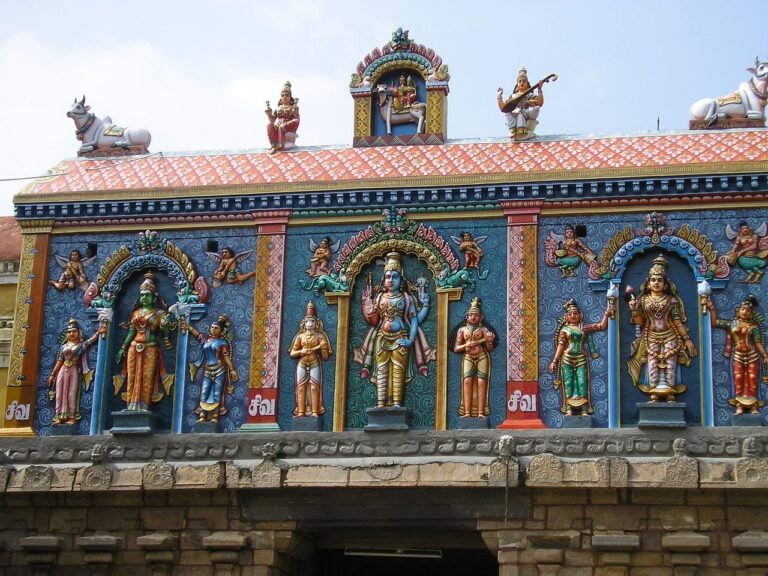Exploring Exit Polling’s Role in Predicting Electoral Outcomes in Diverse Communities
world7, mahadev book login, silverexch: Blockchain technology has been making waves in various industries, from finance to supply chain management. One area where blockchain has the potential to disrupt the status quo is in voter database management. The traditional voter registration process is often plagued with inefficiencies, inaccuracies, and security vulnerabilities. Blockchain technology offers a solution to these problems by providing a transparent, secure, and decentralized platform for managing voter databases.
How does Blockchain Technology Work?
Blockchain is a distributed ledger technology that enables secure and transparent record-keeping. In simple terms, a blockchain is a chain of blocks that contain information. Each block is linked to the previous block, forming a chain. This chain of blocks is stored across a network of computers, making it decentralized and tamper-proof. To change any information on a block, one would need to change all subsequent blocks in the chain, which is practically impossible.
Impact of Blockchain Technology on Voter Database Management
1. Enhanced Security
One of the most significant benefits of using blockchain technology for voter database management is enhanced security. Traditional voter databases are susceptible to hacks and data breaches. By storing voter information on a blockchain, the data becomes immutable and secure. This means that once the information is recorded on the blockchain, it cannot be altered or tampered with.
2. Transparent and Tamper-Proof
Blockchain technology ensures transparency in the voter registration process. Every transaction on the blockchain is recorded and verified by a network of computers. This makes the voting process more transparent and reduces the risk of fraud. Additionally, the decentralized nature of blockchain technology makes it tamper-proof, ensuring the integrity of voter data.
3. Increased Efficiency
Blockchain technology streamlines the voter registration process, making it more efficient and cost-effective. With blockchain, voters can register online securely and quickly. This eliminates the need for paper registration forms and manual data entry, reducing the chances of errors and inaccuracies in voter databases.
4. Decentralization
Decentralization is a fundamental feature of blockchain technology. By decentralizing voter databases, power is distributed among a network of computers rather than centralized authorities. This reduces the risk of manipulation and fraud, ensuring a fair and transparent voting process.
5. Improved Accessibility
Blockchain technology can make voter registration more accessible to all eligible voters. With traditional voter registration processes, some individuals may face barriers to registration due to factors such as mobility issues, lack of access to transportation, or language barriers. By implementing blockchain technology, voter registration can be done securely online from anywhere, making it more inclusive and accessible to all eligible voters.
6. Real-Time Updates
Blockchain technology allows for real-time updates to voter databases. This means that changes in voter information, such as address updates or name changes, can be recorded instantly on the blockchain. This ensures that voter databases are always up-to-date and accurate, reducing the risk of outdated or incorrect information.
In conclusion, blockchain technology has the potential to revolutionize voter database management by enhancing security, transparency, efficiency, decentralization, accessibility, and real-time updates. By leveraging blockchain technology, governments can modernize the voter registration process, improve data integrity, and ensure a fair and transparent voting process for all eligible voters.
FAQs
1. Is blockchain technology secure for managing voter databases?
Yes, blockchain technology is secure for managing voter databases. The decentralized and tamper-proof nature of blockchain makes it an ideal platform for storing sensitive voter information securely.
2. How does blockchain technology improve voter database management efficiency?
Blockchain technology streamlines the voter registration process by eliminating paper forms and manual data entry. This improves efficiency by reducing errors, inaccuracies, and costs associated with traditional voter registration processes.
3. Can blockchain technology make voter registration more accessible?
Yes, blockchain technology can make voter registration more accessible by allowing voters to register online securely from anywhere. This reduces barriers to registration for individuals facing mobility issues, lack of transportation, or language barriers.
4. How does blockchain technology ensure data integrity in voter databases?
Blockchain technology ensures data integrity in voter databases by making the data immutable and tamper-proof. Once information is recorded on the blockchain, it cannot be altered, ensuring the accuracy and integrity of voter data.
5. What are the benefits of decentralizing voter databases using blockchain technology?
Decentralizing voter databases using blockchain technology reduces the risk of manipulation and fraud, ensuring a fair and transparent voting process. It also distributes power among a network of computers rather than centralized authorities, increasing security and trust in the voter registration process.







